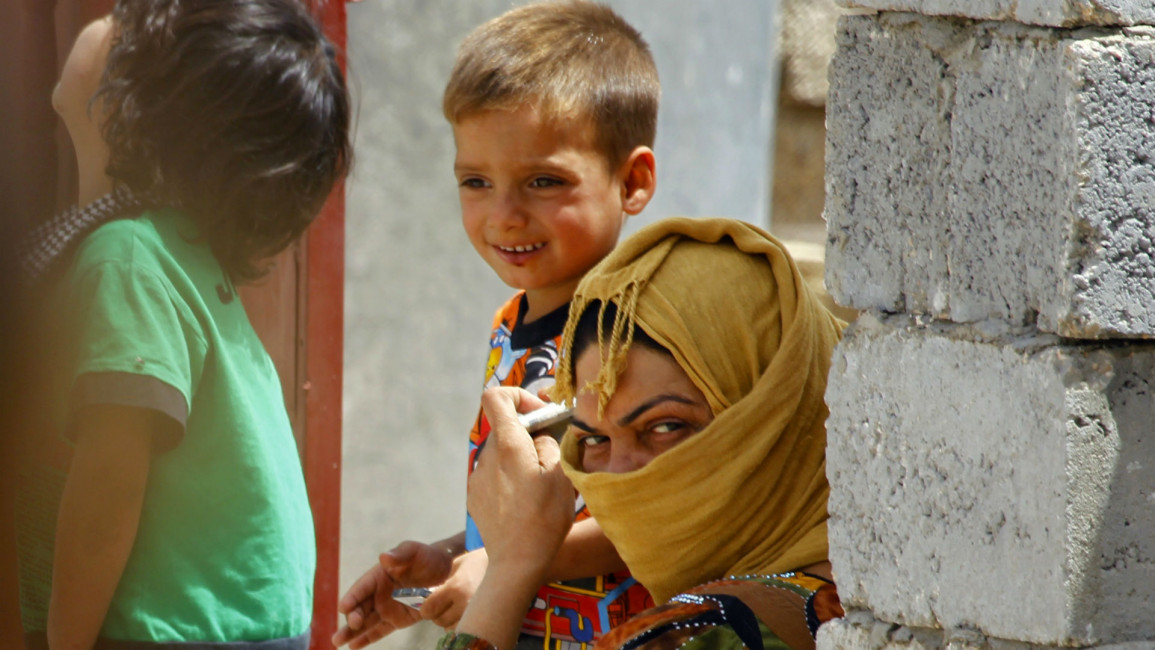Iraq's persecuted 'gypsy' community granted national ID cards
Lawmaker Anaam al-Khizaee announced the decision to allow the marginalised community to be issued national identification cards on Wednesday, local newspaper The Baghdad Post reported.
"The Interior Ministry has granted people from the Iraqi gypsy community for the first time national unified identity cards without reference [to their ethnicity] as it was in the past," Khizaee was quoted as saying.
"The reference was a form of discrimination," she added.
The Kawliya, who number as many as 50,000, have long complained of been denied Iraqi nationality and persecution from the state.
Khalil al-Saad, a member of the group, told The New Arab's Arabic-language service that some Kawliya were granted nationality during the rule of Saddam Hussein but that the majority were denied because they lacked the necessary documents.
"Even those who got the nationality had the word 'gypsy' written on their papers, rendering them useless," he added.
The 2003 US-led invasion and the fall of Saddam Hussein's regime changed things dramatically for the Muslim minority, who had come to Iraq centuries before from India.
During the rule of the Saddam regime, the Kawliya were primarily known as professional musicians and dancers invited to feasts, weddings and parties.
But since the rise of hardline Islamist groups in Iraq after Saddam's fall, the Roma have increasingly been persecuted, accused of loose morals and of participating in parties where alcohol was served.
The group live a precarious existence, scorned by many Muslims and barely tolerated by the rest of society, they form one of the lower rungs of Iraq’s social system.
Follow us on Twitter: @The_NewArab



